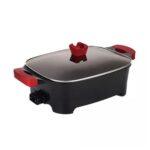Shutdown of Cape Town, KZN needle services for drug users hinders government’s own drug policies

A programme supplying sterile injection equipment was stopped for months in Cape Town following complaints from residents, while a Durban service was closed for two years.
In recent years, HIV has spread rapidly among people who inject drugs, because users sometimes share needles when they don’t have access to new ones. The government has repeatedly proposed a simple and evidence-based solution to this problem: provide users with clean needles, and thereby eliminate the need for them to share.
Studies from around the world consistently find that the number of new HIV cases falls when this is done. Yet despite the government’s formal commitments, local officials from around the country have often shut these programmes down.
In November 2023 the City of Cape Town requested the suspension of one such project in the Wynberg area. It was run by TB HIV Care, a health services organisation operating a mobile clinic in the area.
Mobile clinics are vans that park where people who inject drugs are known to congregate. Nurses provide a range of services, including HIV testing, general medical consultations and sterile needles and syringes. Staff also help people who want to stop using heroin to get on a treatment programme that the organisation runs.
TB HIV Care’s mobile clinics operate in several South African cities under the Step Up programme.
Following community backlash in Wynberg over needle services, municipal officials requested that the mobile clinic be suspended in that area.
In 2018, the eThekwini Municipality also closed TB HIV Care’s programme for two years, despite agreements that the organisation had with the KwaZulu-Natal government.
In Wynberg, the shutdown lasted four months before Western Cape premier Alan Winde intervened. He informed local officials that sterile needle programmes are an explicit part of the provincial government’s strategy for reducing HIV transmission, and need to be supported.
GroundUp spoke to several heroin users in Wynberg, most of whom are homeless, about the impact of the temporary closure.
Abu Talib, who is in his thirties and originally from Hanover Park, said the suspension of the programme affected people “badly”, because they were increasingly “using each other’s needles”. This was repeated by other users in the area, some saying that they increasingly resorted to taking used needles “off the floor”. (Talib says he chose to buy needles from the pharmacy).
TB HIV Care CEO Professor Harry Hausler said: “It’s almost certain that the [suspension of the programme] would have increased HIV and hepatitis C transmission, so from a health perspective it was the wrong decision to make”.
A second health consequence was the uptick in skin infections. Lee-Earl Veldsman, who has been homeless for seven years, said the temporary closure of the programme “affected me because I had to reuse old needles”. These were single-use needles, which became increasingly blunt. Injecting with them “damages your skin and veins”, said Veldsman. “It’s damn sore.”
When TB HIV Care returned to the area, its health workers noticed that an unusually large number of beneficiaries had abscesses on their arms. Nobahle Madolo, a professional nurse who works at the mobile clinic in Wynberg, said that if such abscesses go untreated people “can end up with an arm amputation”.
Backlash
In recent years, some Wynberg residents grew increasingly frustrated with needles littering their environment and open drug use. They blamed the mobile clinic.
Ward 63 councillor Carmen Siebritz (DA) told GroundUp that she and her constituents wanted to terminate the needle exchange service because of “the adverse effects it has on anyone and everyone either residing in the area or moving through it”.
Siebritz did not elaborate on what these adverse effects were, though she stated that the sharing of needles was not being curbed by TB HIV Care, and raised several concerns about drug use in the area.
“Users are seen sitting on sidewalks, in front of people’s homes, in front of businesses and in fact just about anywhere, injecting themselves and openly sharing their needles,” said Siebritz. “The net result also [is] that these needles are left behind in the streets, leaving non-users at risk.”
Things came to a head at a Local Drug Action Committee meeting in November chaired by Patricia van der Ross, the mayoral committee member for community services and health.


 Hip Shaping Pant
Hip Shaping Pant Boxers
Boxers Coats
Coats Hair
Hair Graphic Hoodies & Sweaters
Graphic Hoodies & Sweaters Caps
Caps
 Computer & Laptop
Computer & Laptop
 External Hard drive
External Hard drive
 Headphone & Wireless Earphones
Headphone & Wireless Earphones Charging Cable
Charging Cable
